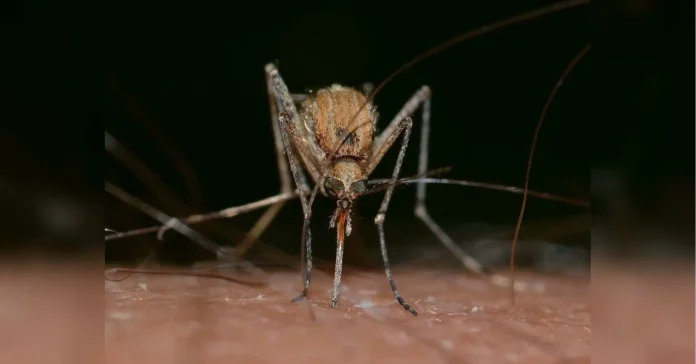Scientists Study Mosquitoes Spreading Dangerous Viruses
Mosquitoes have always been considered one of the most annoying and pesky insects, buzzing around and leaving itchy bites on our skin. However, a team of scientists has recently discovered that these tiny creatures play a much more sinister role in the world. They can also spread dangerous and potentially deadly viruses.
The team of scientists, led by Dr. Maria Rodriguez, has been studying mosquitoes for several years now. Their research focuses on the behavior and biology of different mosquito species and how they transmit viruses. Dr. Rodriguez and her team believe that understanding these creatures is crucial in preventing the spread of diseases that they carry.
One of the most dangerous viruses that mosquitoes can transmit is malaria. According to the World Health Organization, this disease caused an estimated 405,000 deaths in 2018 alone. While malaria is mostly found in tropical and subtropical regions, it still poses a significant threat to human health. Other viruses, such as dengue, Zika, and yellow fever, are also transmitted by mosquitoes and can have severe consequences for those infected.
To conduct their study, the team of scientists travelled to various regions around the world where these viruses are prevalent. They collected thousands of mosquitoes and brought them back to their laboratory for analysis. Their research focused on two main aspects — the genetic makeup of the mosquitoes and their feeding habits.
Through genetic testing, the team was able to identify which species of mosquitoes were most likely to carry these dangerous viruses. With this information, they were able to target specific regions and populations where these mosquitoes are most abundant. This knowledge is crucial in developing effective prevention and control measures.
The team also studied the feeding habits of these mosquitoes. They wanted to understand what type of environment and host they prefer to feed on. This information is vital in understanding how these viruses are transmitted between mosquitoes and humans. The team found that mosquitoes are attracted to places with standing water, which is where they lay their eggs. They also prefer to feed on animals rather than humans, but when the opportunity presents itself, they will feed on us as well.
One of the most surprising findings of the study was that some mosquitoes were able to carry multiple viruses at the same time. This means that a person who gets bitten by an infected mosquito could potentially be infected with more than one virus at once. This is a significant concern for public health as it could lead to more severe and complicated illnesses.
Dr. Rodriguez and her team also looked into ways to prevent and control the spread of these viruses. They found that the best approach is to target the mosquitoes themselves rather than trying to treat the viruses. One method they tested was the use of genetically modified mosquitoes that are unable to transmit viruses. These mosquitoes are bred in the laboratory and then released into the wild to mate with the wild population. As a result, the number of mosquitoes capable of spreading viruses decreases, reducing the risk of outbreaks.
Another prevention method is through the use of insecticides. However, Dr. Rodriguez and her team emphasize that this should only be used as a last resort, as it can have harmful effects on the environment and other insects. The team is also working on developing vaccines against these viruses, which would provide long-term protection for individuals living in areas where these viruses are prevalent.
The research conducted by Dr. Rodriguez and her team is groundbreaking and has the potential to save countless lives. Their findings provide valuable insights into the behavior of mosquitoes and how they spread dangerous viruses. With this knowledge, scientists and health officials can develop more effective ways of preventing and controlling outbreaks of these diseases.
It is essential to remember that while mosquitoes can be carriers of dangerous viruses, they also play a vital role in the ecosystem. They are food for many animals, and their larvae help filter and clean water bodies. Therefore, it is crucial to find a balance between controlling the spread of diseases and preserving the environment.
In conclusion, the team of scientists led by Dr. Maria Rodriguez has made significant strides in understanding the behavior of mosquitoes and how they transmit dangerous viruses. Their research has shed light on the importance of studying these seemingly insignificant insects and their role in public health. With their findings, we can hope for better prevention and control measures to protect ourselves and our communities from these deadly viruses.

